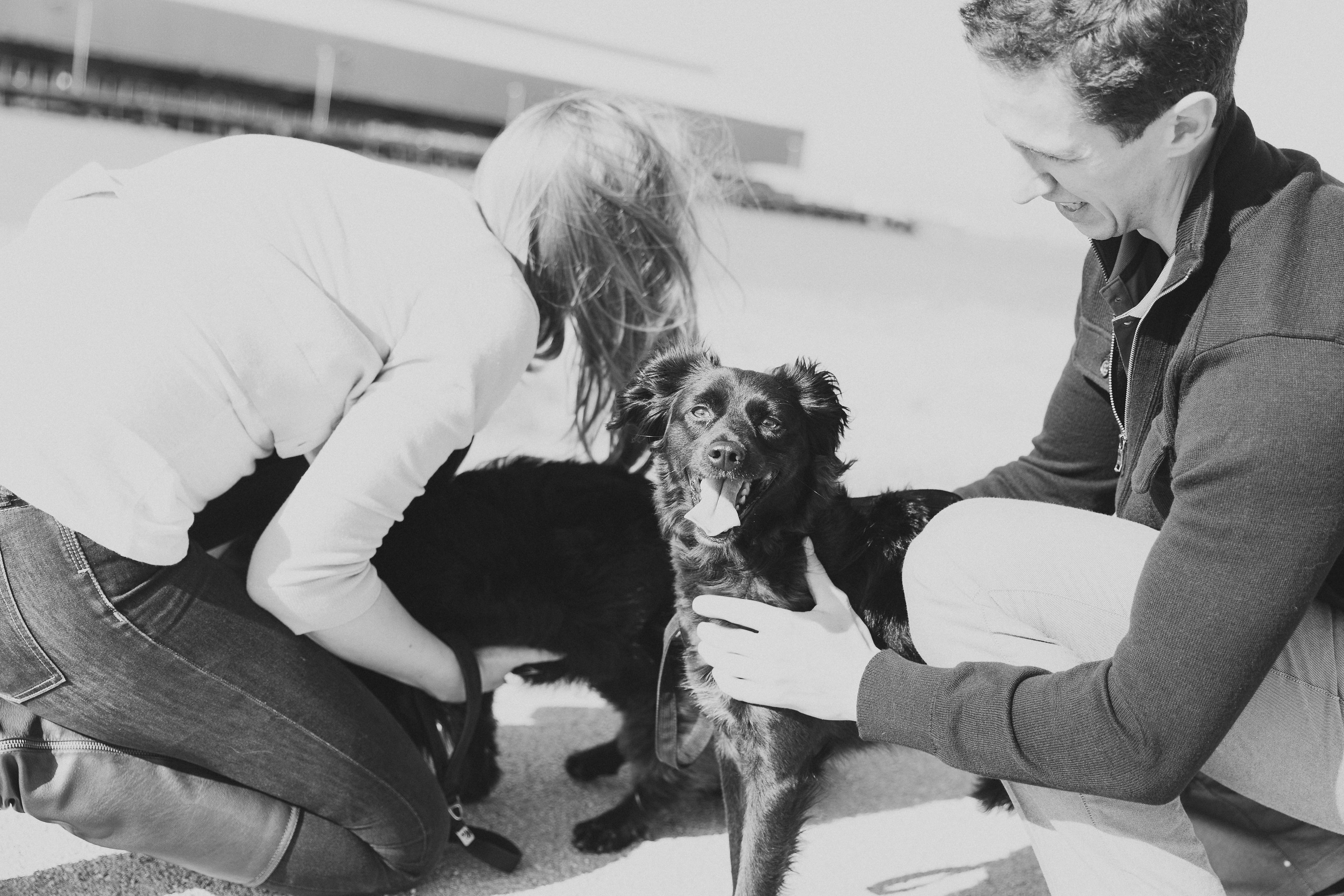One way to know if your dog has separation anxiety, and not another medical issue, is to look at when the problems occur. If your dog never goes indoors when you’re around, it’s likely that his accidents at triggered by your absence. The same is true for a dog who usually doesn’t bark or never chews up furniture, except when left home alone.
“The same is true for a dog who usually doesn’t bark or never chews up furniture, except when left home alone.”
Distracting your dog can also help if he has a mild case of separation anxiety. Give him a treat or toy to play with a few minutes before you head out. You can also take your dog for a walk in the mornings before you leave or play a quick game of fetch in the yard. Your dog will get the exercise he needs and might be too tired out to stress out so much about your departure.
If you’re out of the house on a fairly regular basis, it might be worth it to send your dog to a daycare facility. Your dog will get to meet others and have a chance to play in a supervised setting. A regular pet-sitter or dog walker can also help keep a stressed out dog calm.

Has your dog experienced separation anxiety? Please share your story and solution below!

Comments